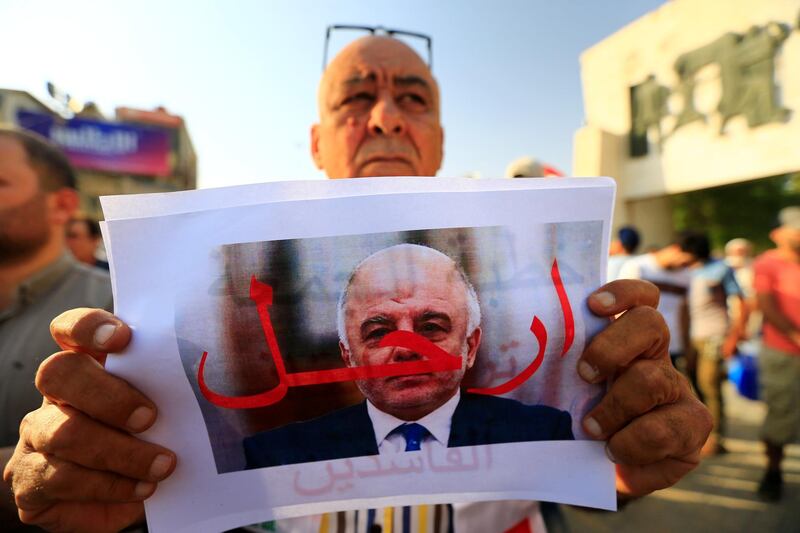Iraq is investigating over 5,000 cases of corruption, many of which involve or implicate senior government officials.
Prime Minister Haider Al Abadi said late on Tuesday night that the Integrity Commission, a government body tasked with fighting corruption, is currently investigating the thousands of cases involving ministers and high ranking officials.
The premier referred several ministers to the commission to investigate allegations of fraud in government education contracts.
Lack of good governance and transparency has been at the heart of the country's problems, with international bodies ranking Iraq on lists of failing states.
Iraq is ranked 169 of 180 states for corruption states in Transparency International’s corruption perception index, with the lowest being the most corrupt.
Mr Al Abadi vowed that his government will “use all available tools to hold to account all those who engage in corrupt practices.”
_______________
Read more:
Iraq forms committee to investigate corruption amid ongoing unrest
Iraq takes first step towards ending political deadlock
Sixty years on, Iraq needs a strong head of state for unity and sovereignty
_______________
"Iraq needs a strong, united government ready to serve the Iraqi people. A strong government is also essential to encourage local and international investment, build our economy and create job opportunities for our citizens," Mr Al Abadi said.
He made the pledges after more than a month of unrest after protests erupted in the south and then spread to Baghdad. Demonstrators rallied against the government’s failure to solve power shortages, unemployment, a lack of clean water and state mismanagement.
Anger is mounting at a time when lawmakers are struggling to form a government after May's elections. The vote itself has been marred by allegations of fraud and voter irregularity that prompted a recount.
Mr Al Abadi, who is seeking a second term in office, is heading a fragile caretaker government that will serve until a new government is formed.
A political bloc led by Shiite cleric Moqtada Al Sadr won the largest share of the votes on an anti-corruption platform that resonated with voters.
Endemic corruption in Iraq has further damaged an economy already badly hit by falling oil prices and the war on ISIS.
The demonstrations prompted Mr Al Abadi to form a committee to investigate corruption and to bow to protesters demands and sack his minister of electricity, Qassem Al Fahdawi.
After taking office in 2014, the prime minister declared war on corruption but has met fierce resistance from politicians, including some from within his bloc, who pushed back on efforts to remove political faction leaders from top posts and replace them with technocrats.






